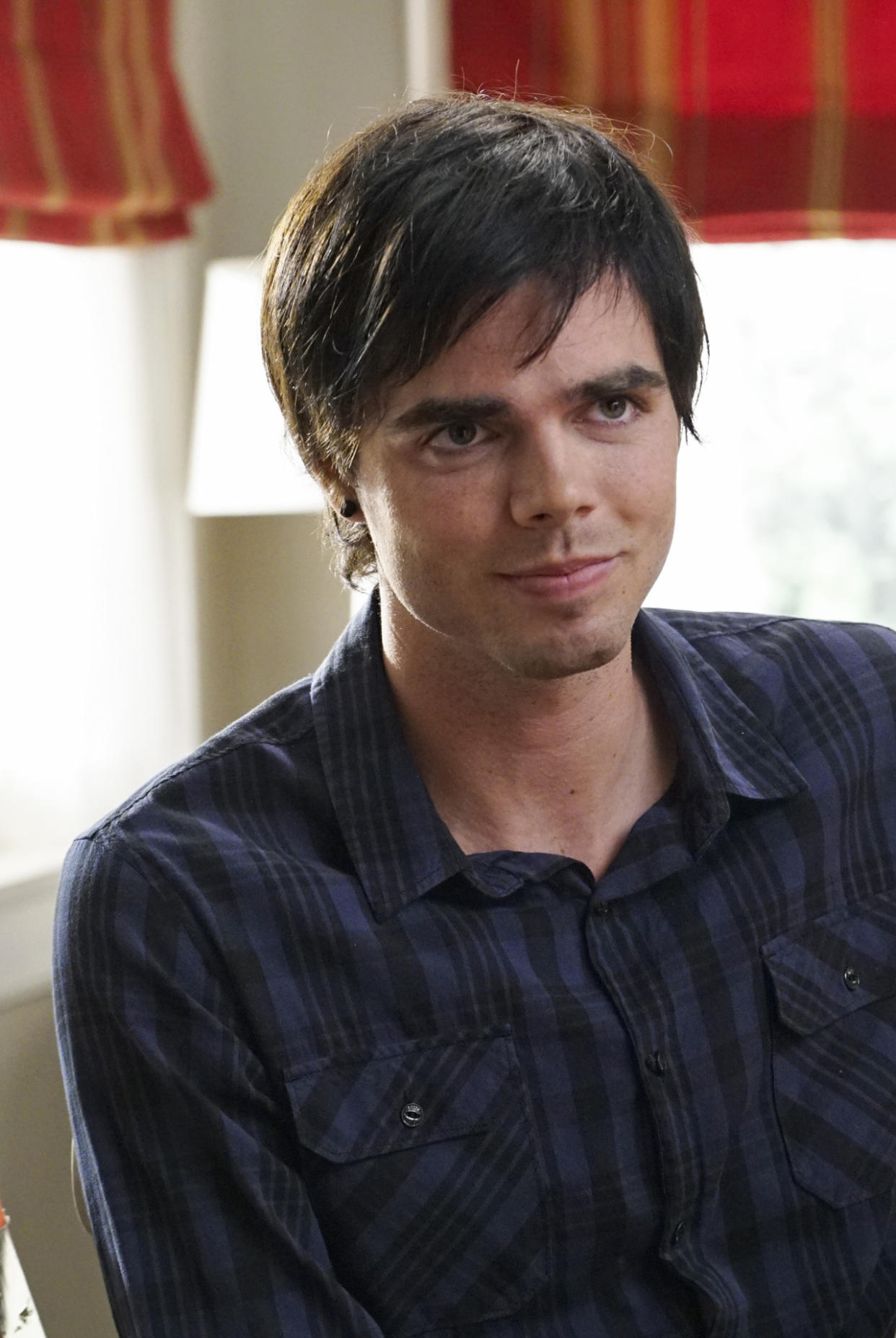'Modern Family' Actor Reid Ewing Details Struggle With Body Dysmorphic Disorder and How He Underwent Plastic Surgery to Look Like Brad Pitt

Modern Family actor Reid Ewing earlier this year. (Photo: ABC via Getty Images)
Body dysmorphic disorder does not discriminate by gender. That is the takeaway from Modern Family’s Reid Ewing’s very brave new essay on the topic.
The 27-year-old actor, who played Sarah Hyland’s love interest, Dylan, on the hit ABC comedy, courageously shared his story in a blog post on HuffPo, detailing how his looks “were the only thing that mattered” to him and how he had hoped plastic surgery would make him look like Brad Pitt.
Ewing said he battled eating disorders and depression for much of his life, but moving to L.A. to become an actor as a teen kicked things into overdrive.
“I’d sit alone in my apartment and take pictures of myself from every angle, analyzing every feature,” he wrote. “After a few years of doing this, one day I decided I had to get cosmetic surgery. ‘No one is allowed to be this ugly,’ I thought. 'It’s unacceptable.’”
Ewing’s first procedure took place in 2008 when he was 19. At the time, “I genuinely believed if I had one procedure I would suddenly look like Brad Pitt,” he shared.
Without any psychological testing that could have uncovered his body issues, depression, and family history of obsessive compulsive disorder, he went under the knife to get large cheek implants. When he awoke, he was “screaming my head off from pain, with tears streaming down my face.” The doctor didn’t tell him that he would have to wear a full facial mask for two weeks after the procedure, so — fearing someone in Hollywood would discover he had work done — he left town to hole up in “a hotel doped up on hydrocodone.”
“When the time came to take off the bandages, it was nothing like I had expected,” Ewing admitted. “My face was so impossibly swollen, there was no way I could make any excuse for it. So I planned to hide out in my apartment in L.A. for another week until the swelling was less dramatic.”
On the way home, he was pulled over for a broken taillight and the police officer asked what had happened to his face. He said he had been in a car accident.
Time didn’t heal his wounds. “After all the swelling finally went down, the results were horrendous,” Ewing wrote. “The lower half of my cheeks were as hollow as a corpse’s, which, I know, is the opposite of what you’d expect, as they are called cheek implants.” Devastated by the results, “I couldn’t let anyone see me like this, so I stayed in complete isolation. When I went out, people on the street would stare at me, and when I visited my parents they thought I had contracted some illness.”
His solution? Have more plastic surgery to fix the botched operation. He found a new doctor to give him a chin implant, another procedure that went awry. For the next few years, he had “several more procedures with two other doctors. Each [one caused] a new problem that I would have to fix with another procedure.”

Ewing has played Sarah Hyland’s love interest on the show since 2009. (Photo: ABC)
“Much of this was going on during the same time period I was shooting Modern Family,” he said. “Most of the times I was on camera were when I’d had the numerous implants removed and was experimenting with less-noticeable changes to my face, like injectable fillers and fat transfers. None of them last very long or are worth the money.”
In 2012, everything came to a head. “All the isolation, secrecy, depression, and self-hate became too much to bear,” he wrote. “I vowed I would never get cosmetic surgery again even though I was still deeply insecure about my looks. It took me about six months before I was comfortable with people even looking at me.”
Ewing felt that had proper screenings been in place, things maybe wouldn’t have gotten so out of hand. “People with body dysmorphic disorder often become addicted to cosmetic surgery,” he wrote. “Gambling with your looks, paired with all the pain meds doctors load you up on, make it a highly addictive experience.”
In hindsight, "I wish I could go back and undo all the surgeries. Now I can see that I was fine to begin with and didn’t need the surgeries after all,” wrote Ewing who now attends college in Salt Lake City, Utah.
And his advice to those in a similar place, "Before seeking to change your face, you should question whether it is your mind that needs fixing.”


